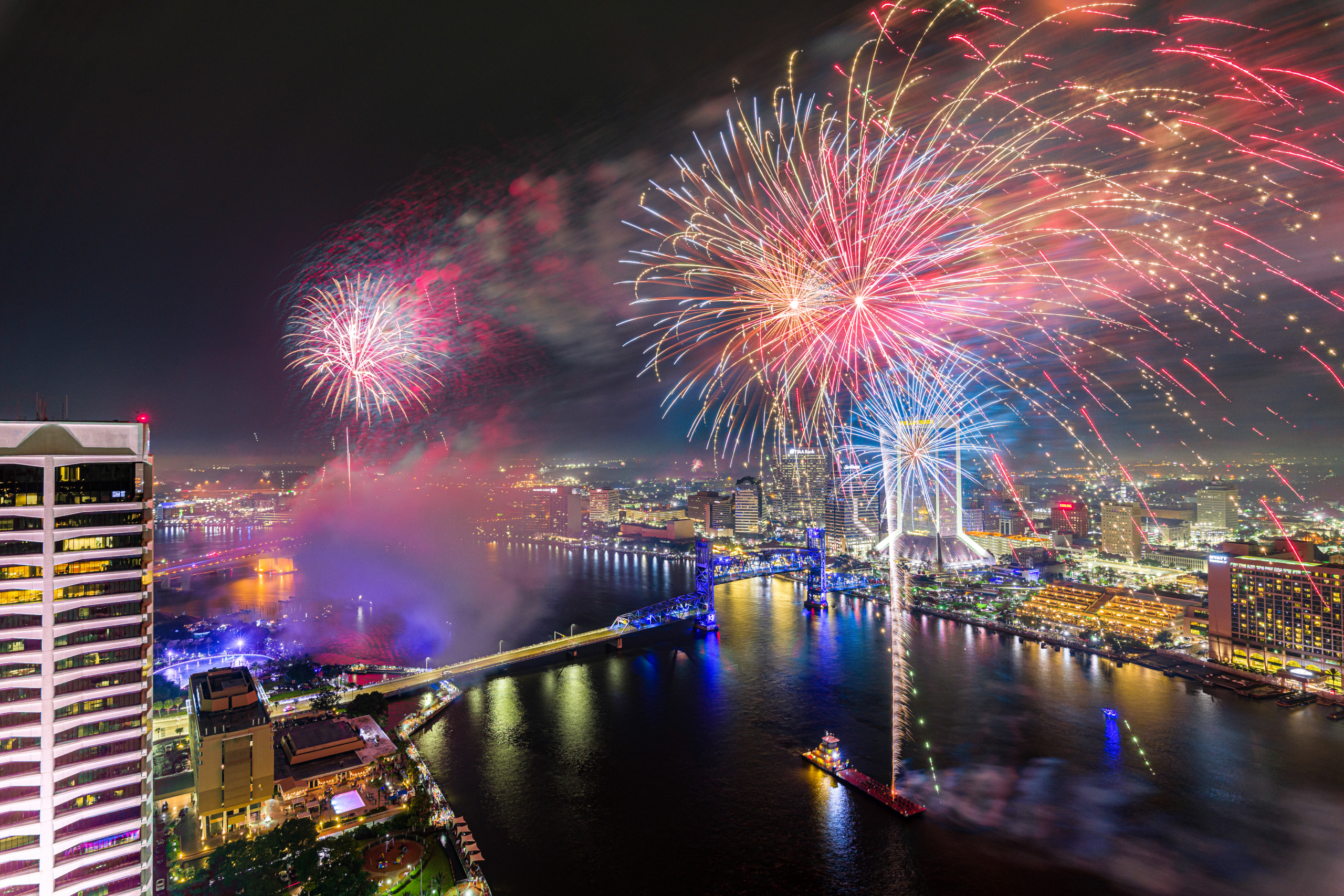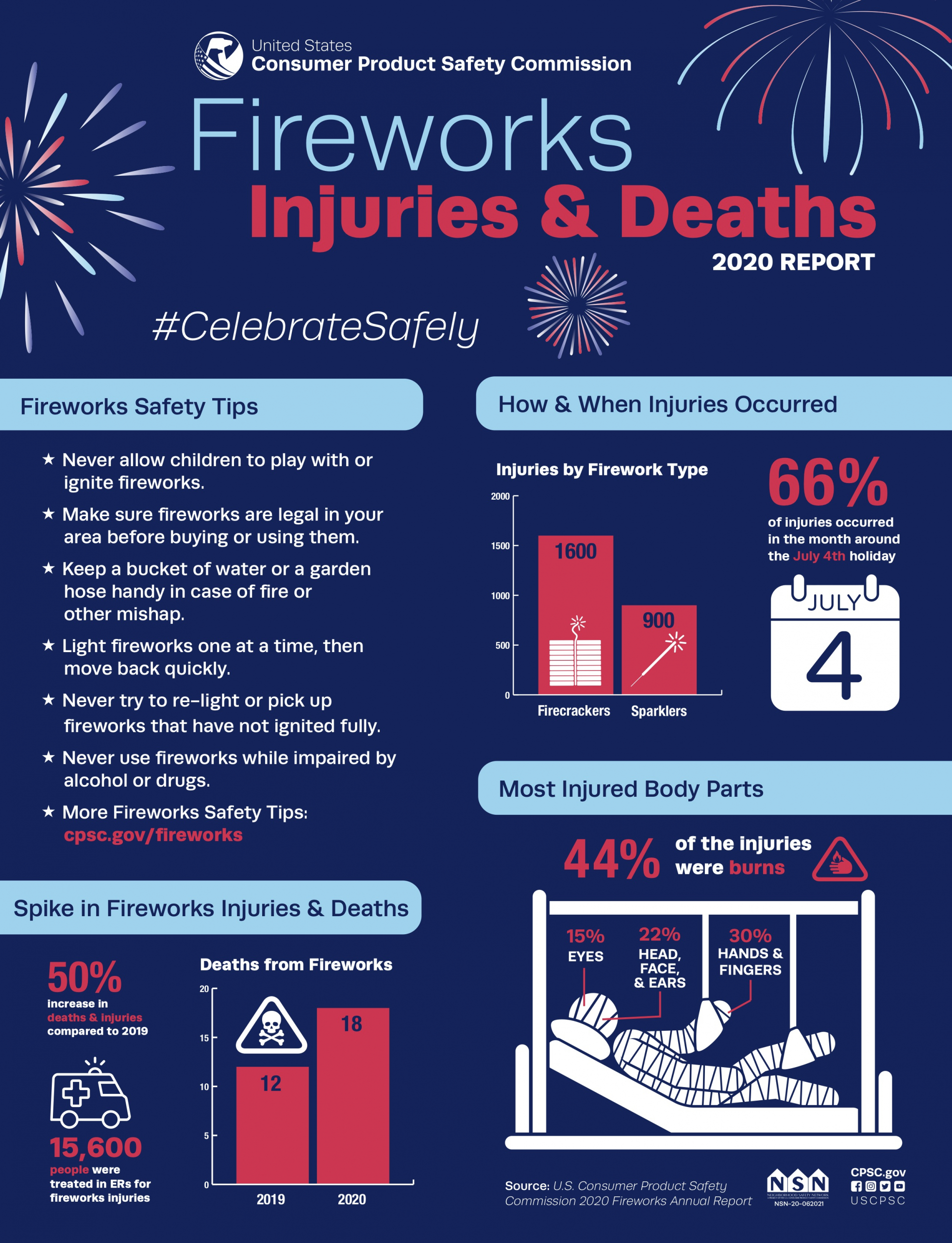
Fireworks are a fun way to recognize the Fourth of July holiday, but safety protocols need to be a priority for all those who decide to use them.
More than half of all fireworks-related injuries happen the first week on July, and more than 15,000 emergency room visits in 2020 were from fireworks injuries. Adults between ages 25 to 44 incurred nearly 35% of the injuries and children under age 15 incurred 18% of those injuries.
What are common injuries from fireworks?
Injuries from fireworks can cause major damage to many areas of the body. The 2020 data from the Consumer Product and Safety Commission and breakdown in the infographic below shows which parts of the body are most commonly injured from fireworks.

How can I prevent injuries from fireworks?
Follow appropriate safety tips noted in the infographic and below:
- Never allow children to play with or light fireworks. Even sparklers can cause serious injury, as they can burn up to 2,000 degrees.
- Never purchase fireworks packaged in brown paper, as this is typically a sign that fireworks were made for professional displays and could pose a danger to consumers.
- Never relight or pick up fireworks that failed to ignite.
- Keep a hose or bucket of water handy before lighting fireworks.
- Light fireworks one at a time, then move back quickly.
- After fireworks complete burning, douse the device with plenty of water before discarding it to prevent a trash fire.
More tips and information about fireworks safety can be found here.
Should you or a family member experience trauma, please do not delay calling 911 or visiting the emergency room.
UF Health Jacksonville stands ready to handle emergencies 24/7, and is staffed by highly qualified, academic, board-certified emergency physicians and trauma surgeons experienced at treating adults and children.
